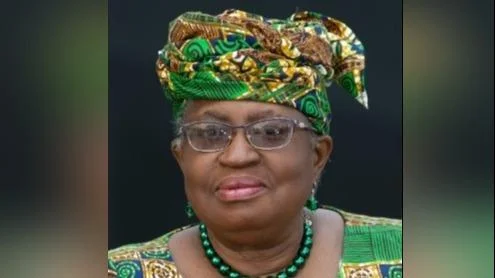Deputy Director-General Angela Ellard emphasized the importance of inclusive trade policies at a recent WTO Chairs Programme event in Lima, Peru. Speaking to an audience that included scholars and policymakers, Ellard highlighted the significance of fostering women's economic empowerment through international trade.
Ellard noted Peru's entrepreneurial spirit, citing studies that show over a third of Peruvian women are entrepreneurs. She expressed gratitude to Professor Saco for organizing the event and acknowledged the presence of Chairs from other countries in the region, which she described as an excellent opportunity for knowledge-sharing.
"Allow me to begin with the premise that as the WTO is marking its 30th anniversary, our approach to international trade has transcended simply addressing economic efficiency, market access, and tariff reduction," Ellard said. She underscored that trade should serve as a catalyst for positive change, particularly benefiting developing and least-developed countries, small and medium-sized enterprises (SMEs), women, youth, and indigenous communities.
Ellard elaborated on re-globalization efforts aimed at extending the benefits of international trade more broadly. "Re-globalization is well underway," she said, noting investments in countries like Vietnam, Morocco, and Costa Rica. The WTO's role includes supporting open markets and reducing trade costs through agreements such as the Trade Facilitation Agreement.
At the most recent Ministerial Conference (MC13) held in Abu Dhabi in February 2024, significant progress was made for developing and least-developed members. Graduating Least Developed Countries (LDCs) were granted a three-year transition period before losing duty-free quota-free market access. Additionally, MC13 saw advancements in special and differential treatment for developing countries.
"The WTO's Aid for Trade Initiative has been a catalyst for unlocking USD 687 billion in investments," Ellard said. She invited government representatives to participate in the upcoming 9th Global Review of Aid for Trade scheduled for late June.
On gender issues in trade policies, Ellard pointed out structural inequalities affecting women globally. "While women represent around 40% of the global workforce worldwide, their earnings are on average between 10 and 30% lower than those of men," she stated. However, firms that export tend to employ more women and offer better working conditions.
Several initiatives were highlighted at MC13 aimed at promoting women's economic empowerment. These included a Declaration recognizing women's participation in trade as essential for economic growth and sustainable development; new disciplines on non-discrimination between men and women in services trade authorization processes; a Compendium of Financial Inclusion Initiatives for Women-led Small Businesses; and a $50 million global fund launched with the International Trade Centre to support women exporters in the digital economy.
Ellard also mentioned ongoing activities by the Informal Working Group on Trade and Gender comprising 130 WTO Members focused on increasing women's participation in global trade through best practices sharing and applying a "gender lens" to WTO initiatives like Aid for Trade.
The WTO Gender Research Hub was also noted as playing a crucial role since its launch in 2021 by improving understanding of trade impacts on gender equality through research collaboration among various organizations including universities from Mexico, Chile, Barbados, South Africa among others.
In conclusion, Ellard reiterated that inclusive policies are essential for building secure economies: "Achieving prosperous economies and well-functioning societies requires a holistic approach that prioritizes inclusivity."
She thanked attendees for their contributions: "I am confident that by continuing to collaborate and innovate we can build a future where benefits of global trade are shared equitably by all."

